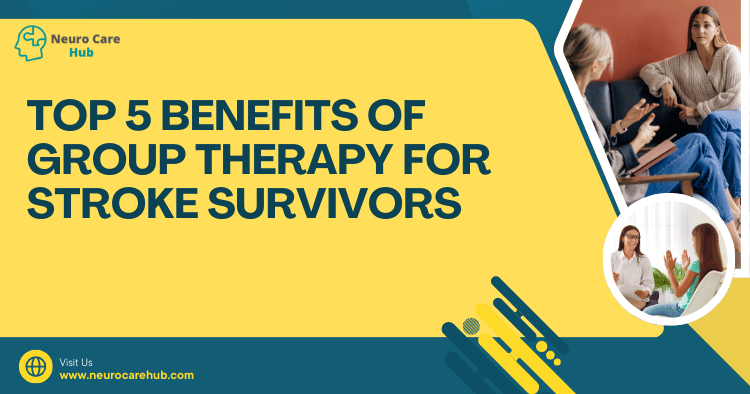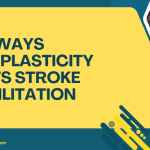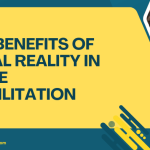Table of Contents
- Introduction
- 1. Emotional Support and Connection
- 2. Improved Communication Skills
- 3. Enhanced Coping Strategies
- 4. Motivation and Accountability
- 5. Access to Resources and Information
- FAQs
- Conclusion
- References
Introduction
Experiencing a stroke can be a life-altering event that impacts not only physical health but also emotional well-being. While individual therapy is beneficial, group therapy offers a unique setting that can enhance the recovery journey for stroke survivors. This article explores the top five benefits of group therapy specifically tailored for those recovering from a stroke, incorporating insights from recent research and practices in neuro care.
1. Emotional Support and Connection
Stroke survivors often grapple with feelings of isolation and depression, which can be exacerbated by their experiences. Group therapy creates a safe space for individuals to share their thoughts and feelings, fostering connections with others who understand their struggles.
“Shared experiences can make a world of difference. Knowing you’re not alone in your journey can significantly lighten the emotional load.”
Why It Matters
- Shared Experiences: Participants can relate to one another’s challenges and triumphs, helping to reduce feelings of loneliness.
- Validation: Hearing others express similar feelings can validate a survivor’s own emotions, making them feel understood and less alone.
Visual Element: Emotional Support Chart
| Emotional Benefit | Description |
|---|---|
| Shared Understanding | Participants relate to similar experiences. |
| Reduced Isolation | Group settings foster connections. |
| Increased Empathy | Survivors learn to support one another. |
2. Improved Communication Skills
Many stroke survivors experience speech and language difficulties. Group therapy provides an excellent environment for practicing communication skills in a supportive setting.
“Communication is not just about words; it’s about connection. Group therapy allows for the practice and reinforcement of these essential skills in a nurturing environment.”
Why It Matters
- Practice Makes Perfect: Regular interaction with others allows survivors to practice verbal and non-verbal communication.
- Feedback and Encouragement: Peers can provide constructive feedback, helping survivors to refine their skills.
Tips for Effective Communication in Group Settings
- Speak slowly and clearly.
- Use visual aids or gestures to enhance understanding.
- Encourage others to express themselves, fostering a collaborative atmosphere.
3. Enhanced Coping Strategies
Coping with the aftermath of a stroke can be overwhelming. Group therapy facilitates the sharing of various coping strategies that can prove beneficial to participants.
“Coping strategies are like tools in a toolbox. In group therapy, members can learn from each other and expand their toolkit for recovery.”
Why It Matters
- Diverse Perspectives: Hearing how others manage their emotions and challenges can inspire new approaches.
- Skill Development: Therapists often guide group members in developing practical coping skills, which can be more effective when learned in a community setting.
Common Coping Strategies Discussed
- Mindfulness and relaxation techniques.
- Journaling to express emotions.
- Engaging in hobbies or physical activities to boost mood.
4. Motivation and Accountability
Recovering from a stroke requires commitment and effort. Group therapy can help motivate participants to stay engaged in their rehabilitation journey.
“Motivation can be contagious. When individuals see their peers making progress, it inspires them to push forward as well.”
Why It Matters
- Shared Goals: Group members can set collective goals, creating a sense of accountability.
- Positive Reinforcement: Celebrating milestones with peers reinforces motivation and encourages continued effort.
Building a Supportive Environment
- Set regular group check-ins to discuss progress.
- Create a shared vision board with goals and achievements.
- Encourage open communication about challenges.
5. Access to Resources and Information
Group therapy sessions often provide access to valuable resources that can aid in recovery. Participants can gain insights into programs, services, and tools that may not be readily available.
“Knowledge is power. Group therapy can connect survivors with essential resources that might otherwise go unnoticed.”
Why It Matters
- Resource Sharing: Members can share information about local support services, medical providers, and rehabilitation centers.
- Educational Opportunities: Trained therapists or guest speakers can provide educational talks on various topics related to stroke recovery, enhancing the overall effectiveness of neuro care.
Common Resources Shared in Group Therapy
- Local rehabilitation centers and support groups.
- Online resources and forums, such as the American Stroke Association.
- Informational brochures and handouts on coping strategies.
FAQs
What is group therapy?
Group therapy is a form of psychotherapy that involves one or more therapists working with a small group of clients. It offers a supportive environment where individuals can share experiences and learn from each other.
How often do group therapy sessions occur?
The frequency of sessions can vary, but they typically occur weekly or bi-weekly. It’s essential to find a rhythm that works for the group members.
Can group therapy replace individual therapy?
While group therapy is highly beneficial, it is usually most effective when combined with individual therapy, especially for personalized attention and treatment.
Who leads group therapy sessions?
Sessions are typically led by a trained therapist or counselor who specializes in stroke recovery and group dynamics.
Conclusion
Group therapy can be a transformative experience for stroke survivors, offering emotional support, improved communication, enhanced coping strategies, motivation, and valuable resources. If you or a loved one is navigating the recovery journey after a stroke, consider exploring group therapy as a powerful tool for healing. Connecting with others who share similar experiences can make a significant difference in the recovery process.
References
- American Stroke Association
- National Stroke Association
- Centers for Disease Control and Prevention – Stroke
“By embracing the benefits of group therapy, stroke survivors can find hope, healing, and community as they navigate their path to recovery.”
For more insights on neuro care and support options, check out our articles on Top 5 Reasons Neuro Care is Essential in Modern Medicine and Top 5 Benefits of Early Intervention in Neuro Care.






